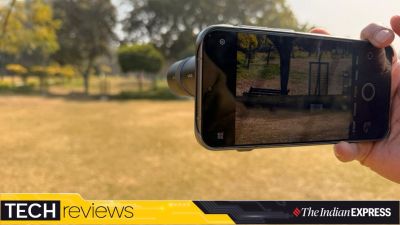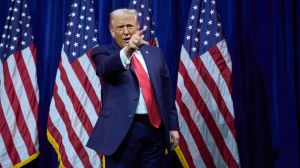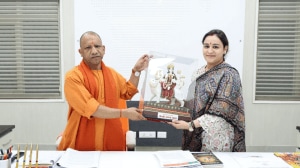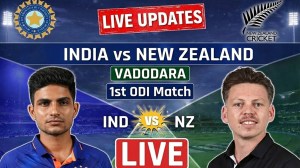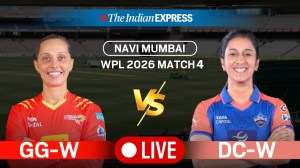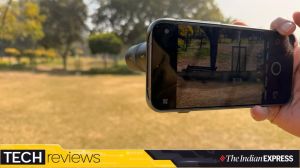Physics Olympians return home winners
MUMBAI, July 12: India's very own G-5 returned from the polar continent today, mission accomplished and very, very contented. Still thawing ...

MUMBAI, July 12: India8217;s very own G-5 returned from the polar continent today, mission accomplished and very, very contented. Still thawing from the icy competition, five students from various parts of India came back from the International Physics Olympiad IPhO 1998 at Reykjavik, Iceland, after securing the 10th rank among 56 countries and with a clutch of warm, lingering memories.
The first Indian team ever to participate in the IPhO 8211; Abhishekh Kumar, Vijay Bhat, Dilys Thomas, Shiv Shekhar Bansal and Saikat Guha 8211; say the experience was both enlightening and stimulating.
The team, led by Dr H C Pradhan of the Homi Bhabha Centre for Science Education TIFR, Mumbai, and Prof T S Natarajan of IIT, Chennai, and supported by the Department of Atomic Energy and the Ministry of Human Research Development, competed with 266 students worldwide between July 2 and 10. China topped the list while other countries which ranked higher than India included Russia, Iran, Vietnam, Hungary and Turkey. The UK and the USwere placed way behind.
Victory was sweeter for this Big Five as they fared far better than their colleagues who have been participating in the Maths Olympiad since the last 10 years. Rankings here usually hover around 14th place.
The going did get rough, at times, the students say, as the Olympiad-type questions were thematic and more penetrating than the posers in national-level competitions, which harp on figures and formulae.
8220;You have to be extremely well-versed with the subject as you have to define the interplay of principles to arrive at your conclusions,8221; explains Bhat, who got a bronze medal and a special award for the best solution to one of the three theoretical problems. The students were also struck by the manner in which educational institutions in countries like Hungary devise simple techniques to drive home the principles of science.
8220;Students in their ninth-tenth grade are given this plastic radioactive detector, which they keep under their pillows for three months and then returnin order to count radioactivity. Now they know that radioactivity is not dangerous per se,8221; explains Kumar. Prof T S Natarajan agrees. 8220;What our education lacks is innovative experimentation. For that, one needs some simple tools as we have here at the HBCSE,8221; he says.
But that is not surprising. At a time when coaching classes rule the roost and grades are of paramount importance, none of the five musketeers named a scientist or teacher as their inspiration in their moment of glory. Their families ranked highest among those who fuelled their drive. Thomas smiles while recalling how he 8220;almost convinced8221; his German colleagues at Reykjavik of India8217;s recent nuclear foray. 8220;I reasoned that if the Big Five can have it, why not India,8221; Thomas grins.
The justification, however, stemmed more from a need to save face than a sense of conviction for none of the five teenagers is proud to be a part of a nuclear India. Most of them say they are against the N-bomb per se though Kumar feels the 8220;explosion wasneeded8221;, but 8220;the BJP should first concentrate on delivering its promises on social concerns like improving the education scenario.8221;
- 01
- 02
- 03
- 04
- 05


